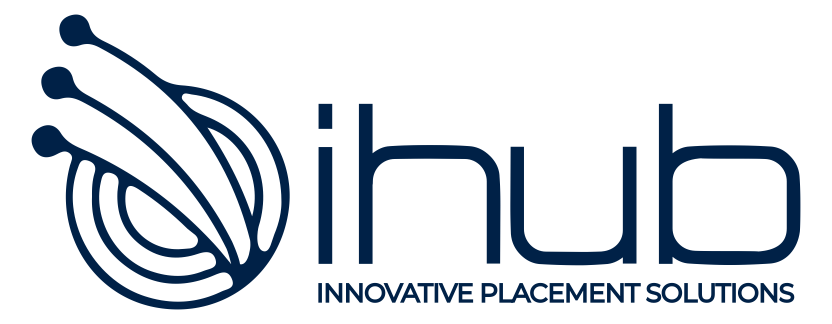Software Testing Tools Training In Hyderabad

Unlock Your Future with I Hub Talent’s Testing Tools Training in Hyderabad!
At IhubTalent, we provide the best testing tools training in Hyderabad, equipping you with the skills needed to excel in the tech industry. Our comprehensive programs cover essential areas, including a manual testing course in Hyderabad, perfect for beginners looking to build a solid foundation in software testing.
Dive deeper into automation with our Selenium testing Course training in Hyderabad, where you’ll learn to automate web applications effectively. For those interested in API testing, we offer specialized training that covers best practices and tools to ensure seamless integration and functionality.
Additionally, our Cypress automation testing training in Hyderabad (Ameerpet) is designed for those wanting to master modern testing frameworks. Our expert instructors provide hands-on experience and real-world projects to ensure you are job-ready.
Join us at IHUB TALENT and gain the competitive edge you need to succeed in the ever-evolving field of software testing. With flexible schedules and a supportive learning environment, your path to a successful career starts here
Course Overview: Testing Tools Training at I Hub Talent
I Hub Talent offers a comprehensive Testing Tools Training program designed for aspiring testers and IT professionals. This course covers both manual and automated testing methodologies to equip you with essential industry skills.
Key Modules:
Manual Testing Course: Learn the Software Development Life Cycle (SDLC), test planning, writing and executing test cases, and managing defect lifecycles.
Selenium Testing Training: Gain expertise in Selenium WebDriver, automate test scripts, and develop frameworks using Data-Driven and Behavior-Driven Testing methodologies.
API Testing: Understand API fundamentals, utilize tools like Postman for testing, and practice validating API responses.
Cypress Automation Testing: Explore Cypress for modern web applications, write tests, and integrate with CI/CD pipelines for continuous testing.
Learning Outcomes:
Participants will be proficient in manual testing, automation with Selenium and Cypress, and API testing. This course is ideal for beginners, manual testers transitioning to automation, and developers seeking to enhance their testing skills.
Eligibility
- Professionals who are looking for a career in the field of Data Science and Big Data
- Data Science professionals
- Big Data professionals
- Business Intelligence professionals
- Software Developers
- Project Managers
- Information Architects
Course Content
- Testing Introduction
- Define Software Quality
- List the Software Quality Attributes
- Understand Verification and Validation
- Understand what is Software Testing and its Significance
- Explain how Testing improves Software Quality
- Understand History and Evolution of Software Testing
- Describe Software Testing Principles
- Define what is a Software Defect and its significance
- Understand various software development methodologies
- Explain how testing process would differ based on the development methodology
- Functional & Non-Functional Testing
- Functional & Non-Functional Testing types
- Functional & Non-Functional Testing Tools
- Black box Vs White box Testing
- Manual & Automation Testing
- Fresh development & Maintenance Testing
- Fresh development & Maintenance Testing
- Benefits of testing at each level
- Unit Testing & Component Integration Testing
- System Testing & System Integration Testing
- User Acceptance Testing
- Transition and Requirements Analysis
- Knowledge transition and Significance
- Requirement analysis process
- Tester involvement in these phases
- Types of requirements & Analyze the requirement specifications
- Prioritize the requirements
- Understand clarification management
- Analyze requirement defects
- Requirements change management & Concept of requirements coverage
- Difference between Application Development and Maintenance in this phase
- Test Strategy
- Test Plan
- Test Strategy vs Test
- Test Plan sections
- Test Design Overview
- Test Scenario Overview
- Requirement Traceability Matrix for Test Scenarios
- Test Case Design
- Test Case Development Process
- What is a Test Case?
- Test Case Development
- Test Design Techniques
- Test Case Template
- Test Case Components
- System Integration Test Cases
- Test Case Review Process
- Test Case Review Process
- Test Data Preparation – Test Cases Review
- Test Environment Setup
- System Integration Test Cases & Test Case Review Process
- Requirement Traceability Matrix (RTM)
- Test Data Preparation & Test Cases Review
- Identify the procedure for Test Data Preparation
- Planning for Test Execution & Test Environment Configuration
- Test Environment – Test Management Tool
- Setup Test Environment – Database Setup
- Test Case Execution and Logging results Test Case Run Status
- Test Execution Reports
- What is the defect?
- What is the difference between Error, Defect and Bug?
- Defect Life Cycle
- SDLC Models
- Waterfall Model & V Model
- Iteration Model
- Scrum Framework
- Roles of Scrum Framework
- Product Backlog
- Sprint Backlog
- Product Owner
- Scrum Master
- Scrum Development team
- Sprint Planning meeting
- Daily Scrum
- Sprint Review meeting
- Sprint Retrospective meeting
- How to use JIRA for Agile Project Management
- How to use Confluence for Agile Project Management
- How to use JIRA as Test Management Tool
- How to use JIRA as Defect Management Tool
- How to use JIRA for reports and Metrics
- Product Idea
- Product Vision statement
- Product Roadmap
- Product Backlog
- Project Architecture
- Project Test Plan
- Project Domain Knowledge
Why Choose IHub Talent
100% Success Rates in the Placement for Skilled People
Flexible learning options
However, IHUB has a blended learning opportunity online and offline to suit your schedule.
Cutting-edge courses
Stay way ahead of the learning curve with IHUB syllabus that would equip you with no compromise quality with most recent changes and know how in high demanding fields.
Innovative teaching methods
By making sure of deeper insight, teaching procedures and retention of knowledge you can experience engaging and interactive learning through IHUB special teaching methods.
Career Support
In ihub, get hands on support while resume preperation, mock interview and placement assistance for your career to race ahead.
